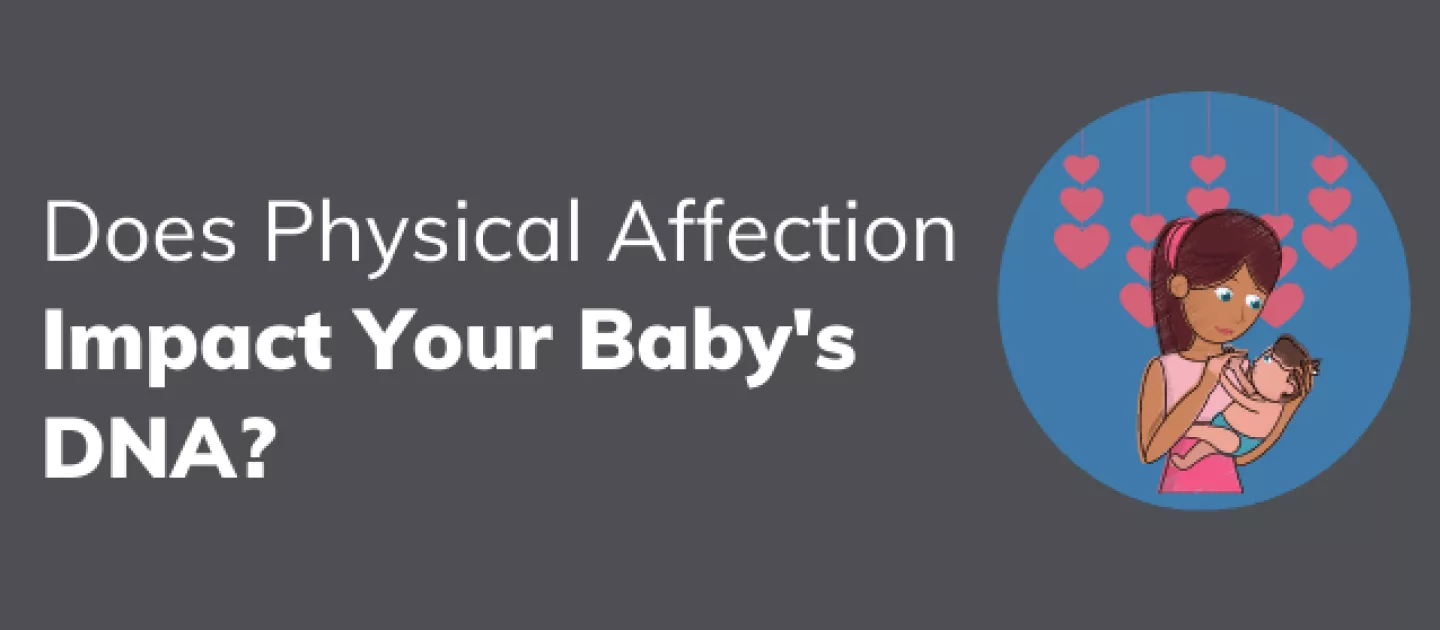Parents show their love by giving their baby plenty of affection. Studies show that physical contact (like skin-to-skin contact) with your baby from the moment they’re born has its benefits, including the bond it creates between you and your little one. What hasn’t been studied until more recently is if and how that physical contact influences another important aspect - their development. According to a study from the University of British Columbia and BC Children’s Hospital Research Institute, early postnatal contact has lasting associations with child biology and development of their genetic expression.
About the Study
While animal models have demonstrated the importance of physical contact and the behavioral outcomes is has on the modification of DNA, this is the first study to look at how it affects humans and how it can be detected up to four years later.
For the study, parents were asked to keep a diary detailing the behaviors of their 5-week-old babies which included crying, feeding, sleeping, and fussing. Parents also documented the amount of time they spent giving care involving physical bodily contact. When the babies reached about 4-5 years of age, researchers took a DNA sample from the inside of their cheek with a swab.
Researchers examined these samples for patterns of biochemical modifications known as DNA methylation. DNA methylation occurs when methyl groups (clusters of hydrocarbons) attach itself to parts of the DNA, thereby modifying how genes function. The degree of which methylation occurs and the areas of the DNA which it attaches itself to can be influenced by external circumstances, including childhood.
Findings from the Study
Results from the study showed consistent differences of methylation in five areas of the DNA between children who had more physical contact when they were young vs those who didn’t. Two of these areas influence the immune system and metabolism.
The study determined that children who received less physical contact when they were in distress had an underdeveloped molecular cell profile for their “epigenetic” age (refers to an estimate of one’s biological age), suggesting the children were developmentally behind compared to others that were the same chronological age. Research shows that this inconsistency was related to inferior health.
Ultimately, the study confirmed that physical contact with your baby is responsible for changing genes that affect their health and development. At this time, further research is needed to determine the broader impact on health and psychological development.
To see more about the study, click here.
You can never give your baby too much love. Pick them up and give them plenty of kisses and cuddles. All this love won’t only make your bond stronger, but also shape their future happiness.
Disclaimer: PerkinElmer and ViaCord do not endorse or make recommendations with respect to research, medications or treatment. All information is provided for informational purposes only.
Resources:
Standford Medicine. The benefits of touch for babies, parents. https://med.stanford.edu/news/all-news/2013/09/the-benefits-of-touch-for-babies-parents.html#:~:text=Skin%2Dto%2Dskin%20time%20in%20the%20first%20hour%20helps%20regulate,also%20increases%20mothers'%20relaxation%20hormones.
NCBI. Epigenetic correlates of neonatal contact in humans. https://pubmed.ncbi.nlm.nih.gov/29162165/
What is Epigenetics. DNA Methylation. https://www.whatisepigenetics.com/dna-methylation/
ScienceDirect. DNA Methylation. https://www.sciencedirect.com/topics/neuroscience/dna-methylation
National Institute on Aging. Epigenetic age estimated by changes in DNA methylation predicts mortality. https://www.nia.nih.gov/news/epigenetic-age-estimated-changes-dna-methylation-predicts-mortality
Scitable. Epigenetic Influences and Disease. https://www.nature.com/scitable/topicpage/epigenetic-influences-and-disease-895/#:~:text=Epigenetics%20and%20Disease%3A%20Some%20Examples&text=While%20epigenetic%20changes%20are%20required,activation%20or%20silencing%20of%20genes.











